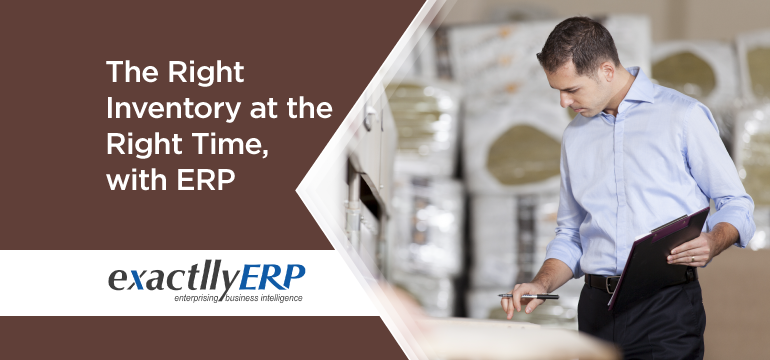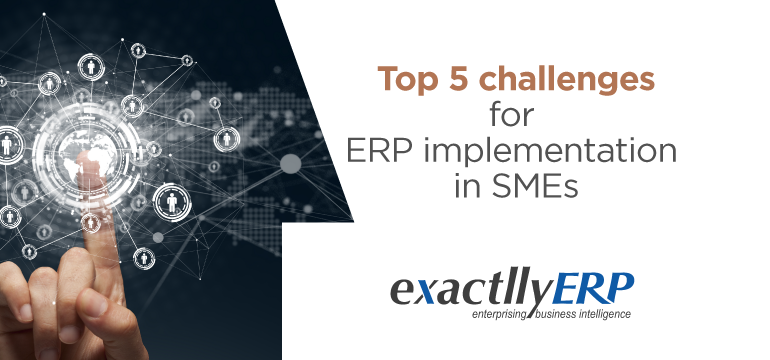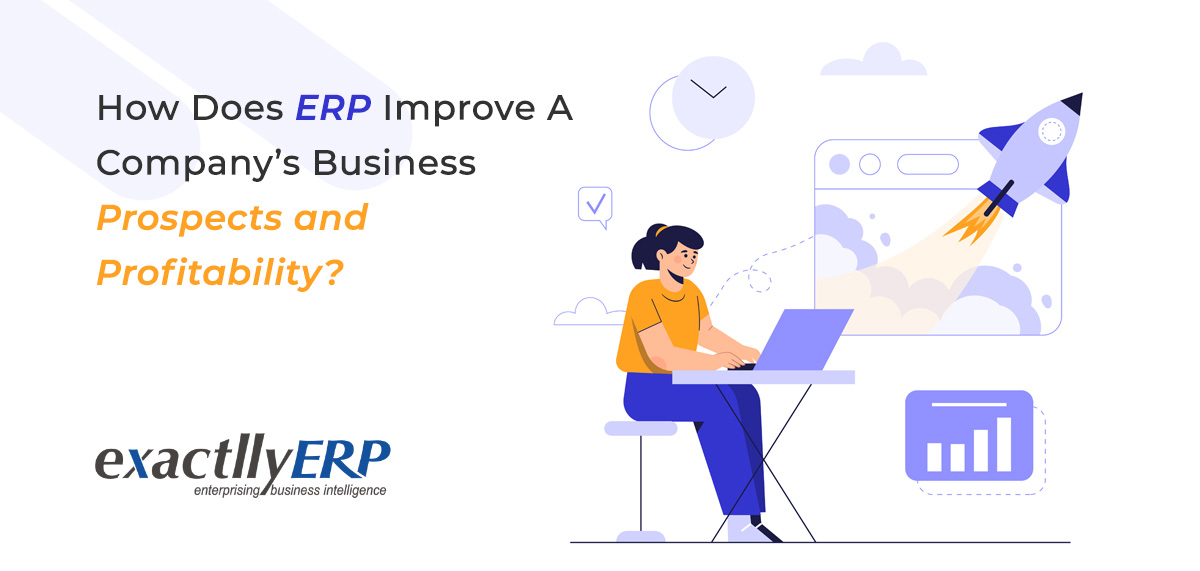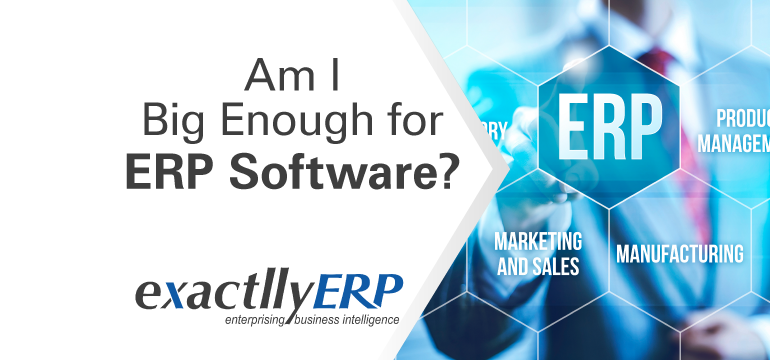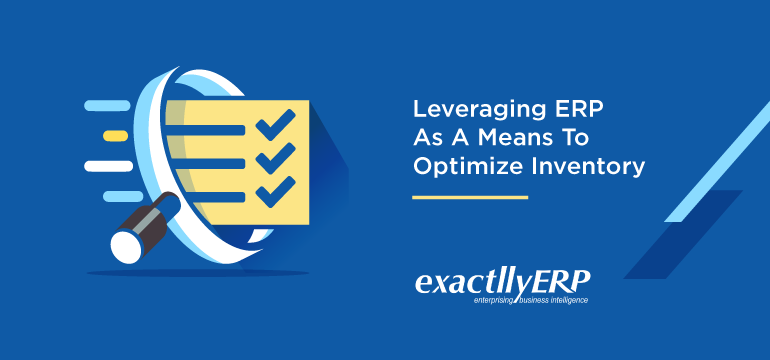Understanding the Landscape of Integrated ERP Systems in the Future
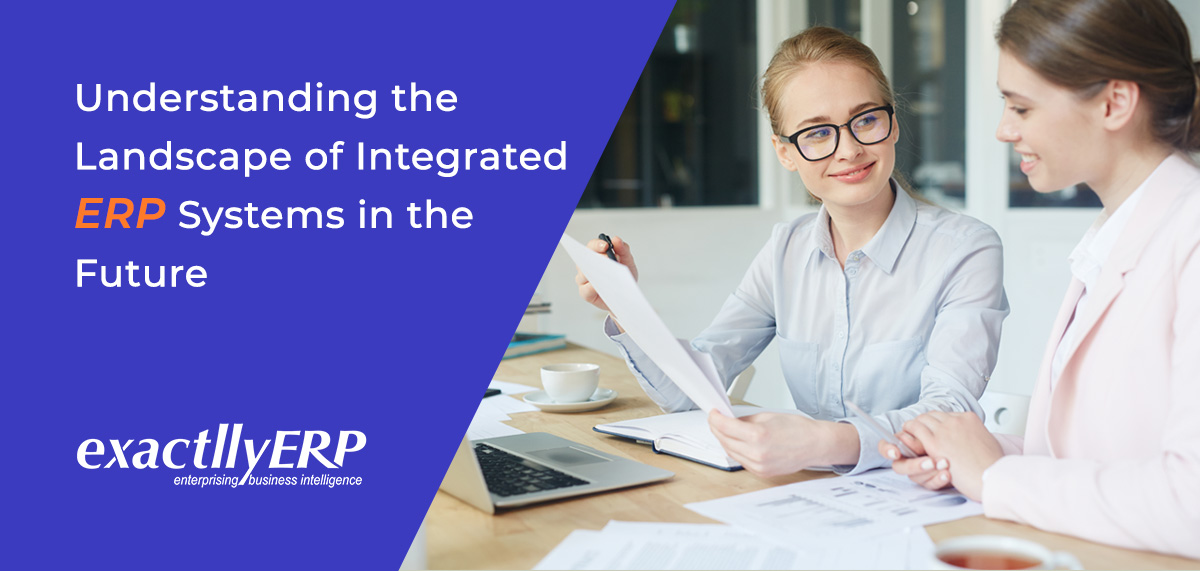
With the current scenario associated with ERP systems or enterprise resource planning systems, it can be said that these systems will undergo segregation in the near future. The need and demand for integrated ERP systems will rise. A snowballing of software-as-a-service products like integrated ERP solutions and applications can now be witnessed. Customers’ perspective is changing as well, as now they seek to obtain the systems of the highest quality that will meet their needs instead of just deploying traditional systems. An integrated ERP system is the perfect example to understand this. This is quite evident in the process customers make their purchases today and how the designing of ERP solutions is taking place. Customers are going for clustered solutions like ERP software that resonate with the agility that companies require. Legacy systems come with many challenges, and this is compelling organizations to opt for the best integrated ERP systems. In this blog, we will learn about what the future holds for integrated ERP solutions. Stay tuned.
Connection With Digital Transformation & Integrated ERP Systems:
In the digital era, most organizations are undergoing a sharp digital transformation along with usual changes associated with organizational development and growth. All this affects the requisites that organizations are anticipating and demanding from the advanced and integrated ERP systems. The ERP system that they deploy must shift to the next maturity level and move from a conventional record system to a system of differentiation. The ultimate objective will be to function alongside a groundbreaking integrated ERP system to boost sales orders, profits, and revenue.
Today’s ERP software goes beyond being simply a record system that rests at the bottom. The best integrated ERP systems from Exactlly move beyond the digital pace layer due to external factors. The intense digital cycle of shifting from actions to results, information to insights and then back into actions is now pacing, and today’s ERP software solutions cannot help but be a part of the cycle.
Organizations need to act intelligently to make correct utilization of the modules and tools that an ERP system has in store for them. The resources will help organizations in making better business decisions. ERP in the retail and construction industries can make better and real-time decisions with integrated ERP systems.
Transforming Business needs with Integrated ERP:
The business requirements of every organization in today’s time are changing. It is impacting the progression of ERP solutions as well. Here it is important to learn regarding the two schools. In the first one, an organization recruits conventional leaders whose aim is to secure the core. Following this, they think about the ways of transforming the business. 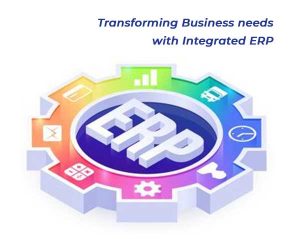
The second school is about millennials and the emergence of modern age leaders. These individuals come from a younger generation that is at par with the processes of the current era and are affecting differently on the office environment in long-standing businesses.
If we look at the earlier times, it is clear how agility was linked with an organization’s size. But now, the scenes are different as integrated ERP solutions are clustered into accurate point solutions that enable big organizations to shift direction at a fast pace. They are now working on more advanced ERP projects. This is because, with ERP business collaboration, organizations can scale like never before. ERP software is now integral to the techniques organizations are running their businesses.
People, Technology & Adoption:
Today organizations need to tackle one of the biggest challenges, which is People. In context to the adoption of new software systems, organizations have faced several challenges from people’s end. If we look at integrated ERP systems of today’s time, these systems are now designed by keeping the workforce of an organization in mind. The transformation of ERP systems is affected by the individuals who will be using the systems. Employee training is crucial that the organization needs to conduct correctly to be able to benefit from the ERP system.
We can understand this better from the example of social media. Millennials are the group of people who are the upcoming workforce who have more or less twenty years left in the present organization they are working for. Indeed, after a point in time, no one in the ecosystem will belong from the category of baby boomers and gen x. The generation of millennials likes everything connected, which applies to software systems and business processes. The ability to make real-time business decisions and connectivity levels are having a tremendous effect on designing integrated ERP systems in the present times. It is driven by the people and the users of an organization.
Previously, the reasons for designing the ERP software and the techniques used for designing were regarding streamlining the results of the action that was the primary function. The user interface was the secondary function. But in the 21st century, ERP projects have undergone a shift, and the outputs are not going to crop up until enchantment is there in usability.
Numerous ERP system integration challenges can now be quickly addressed because of the emergence of the cloud. If we witness clustered solutions compared to united systems, cloud technology has advanced that helps it combat most integration challenges with precision. Cloud comes with boosted flexibility, especially within the ERP space.
Cloud and mobility go hand-in-hand, and the requirement for in-the-moment and real-time action and decision-making is now critical for all organizations. Taking decisions ideally and on time is required for the overall betterment of any business, including areas of retention and customer experience. This is possible quickly with an integrated ERP software system. The software systems also empower the employees and the workforce by automating varied business processes, thereby creating a more harmonious environment within the organization.
From the perspective of Artificial Intelligence, the cloud ERP software platform functions as a practical knowledge and learning system as here everything gets recorded. Organizations with the amalgamation of AI and integrated ERP systems can make decisions from vast amounts of information and data within less time. This is possible even more when the organization associates with the best software and the best ERP partner. The kind of support an organization receives from its ERP partner during and after the software implementation matters considerably.
The core of everything is ERP software systems, starting from data-driven to data-first enterprises and organizations. The record system function is something that is never going to fade away. Data-driven enterprises must shape their decisions depending on the accessible information and facts and not on emotions and opinions. This is precisely everything the function of the record system offers. It comprises all pieces of information connected to the business and the organization and will accompany the making of faster decisions.
Without any doubt, the world will witness further evolution and progression within the ERP systems and functions. The functions of the best ERP software in Kolkata have been transformed, but the form is also transmuting.
Key Modules:
The modules required for an effective ERP software system will always depend on the company and the business. However, core modules come with integrated ERP solutions, and the essential ones are accounting and finance. An organization, while deploying ERP software, needs to understand how the modules can affect its business.
Consumerization of ERP Systems:
Millennials’ effect on the techniques that the integrated ERP systems are designed also affects how the systems have become consumerized. The impact is driven by how it resonates with technology that a customer would utilize and will take an interest in learning how to utilize it.
In the present times, the user or the employee of the integrated ERP system is not concerned regarding the working of the technology in the background. But when we say users of Integrated ERP solutions, we do not address the Tech specialists. These are consumers who are aiming to use technology like integrated ERP systems to simplify and streamline things. As long as people can get the results they are looking for after utilising the ERP system, nothing can stop them from becoming productive and happy. The ERP software needs to be fast and convenient to use as well. It is not always required for the workforce to understand how ERP solutions work. The best-integrated ERP system from exactllyERP is a technology that naturally enables the workforce to solve one specific problem and numerous problems simultaneously. You can quickly get your hands on the best integrated ERP systems in Kolkata & implement them to witness significant changes within your business. If you want to watch the Free Demo on the best integrated ERP systems, you can watch it on the website. Contact Us today.
FAQ:
(1) What is the future of the ERP system?If we look at the ERP market by 2022, mobility will be the primary dominant along with more advancements on SaaS and Cloud. (2) What is the reason for an Integrated ERP System?All business aspects can be controlled from one application with an integrated ERP system. This enables seamless flowing of data through the organization and down to the financial statement. (3) What is the future of the ERP market in India?The future of the ERP market in India is anticipated to expand at a CAGR of 26.7% during the forecast period 2017-2022. The future market will be driven by high-end cloud ERP software adoption among businesses of all sizes. (4) What is the scope of ERP?The scope of ERP includes personnel management, purchase and order control, financial accounting, material management and integrating the organizations with flexible task assignments. (5) Which of the following are the main characteristics of an Integrated ERP System?Real-time operations, consistent feel and look, enterprise-wide integration and a common database are the main characteristics of an integrated ERP system. (6) What are the four ways an Integrated ERP System can help improve supply chain performance?Vendor performance, fraud and risk prevention, real-time reporting and inventory management are the four ways an integrated ERP system can help improve supply chain performance. (7) What are three ERP Integration methods?The three ERP integration methods are customer service integration, integration for guaranteeing precise financial data and e-commerce integration. (8) What is included in an ERP Solution?ERP solutions can incorporate capabilities for manufacturing, order management, procurement, maintenance, project management, supply chain management and a lot more. (9) How do you Integrate with ERP?ERP integration is about the connection and synchronization of ERP systems with business applications like Electronic Data Interchange, e-commerce, Customer Relationship Management, etc. (10) What must a system do to qualify as a true ERP Solution?The system needs to be open and modular, beyond the organization, flexible and all-inclusive to qualify as a true ERP solution. (12) Why do companies use ERP Systems?Companies utilize ERP systems for streamlining and automating processes, crafting an efficient and accurate operation and a lot more. ERP offers visibility into the core business processes. |

